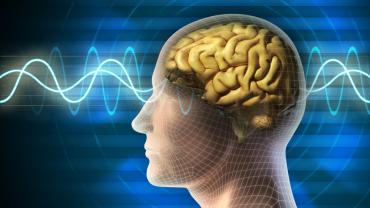
When someone is feeling anxious or acutely stressed why is it that friends—or more often a doting grandmother—offers to make a pot of tea rather than brewing coffee? Despite tea’s caffeine content another compound present in tea—L-theanine—might have a calming effect. As implied by its more technical name N-ethyl-L-glutamine theanine is a derivative of the amino acid glutamine. This compound crosses the blood-brain barrier and may help increase brain levels of serotonin dopamine and GABA. Its widely recognized anti-anxiolytic properties have led some healthcare professionals to dub it “nature’s chill pill.”
Millions of individuals rely on coffee to keep them awake alert and focused on the tasks at hand. However some people are quite sensitive to the caffeine in a strong cup of joe. These individuals might find that tea gets the job done without some of the unpleasant effects they feel after drinking coffee. The theanine in tea may somewhat offset the effects of caffeine or work in a synergistic manner to bolster the positive properties of the caffeine while dampening down some of the negative ones.
Theanine has many purported mechanisms of action. One of the primary ones is blocking the binding of glutamic acid to brain glutamate receptors which results in an anxiolytic effect by inhibiting cortical neuron excitation. Theanine has also been shown to affect alpha brain wave activity in humans which may facilitate a more relaxed state even while someone remains alert and attentive.
Individual responses to stressful situations vary widely. Some people stay cool as cucumbers while others become virtually paralyzed with tension and fear. Theanine may be beneficial for reducing the physiological effects of acute stress. In a double-blind placebo-controlled crossover study compared to placebo oral administration of 200mg of theanine resulted in significant reductions in blood pressure among “high responders” to stress. (Individuals whose systolic blood pressure had risen by 9.46 - 33.88mmHg during mental tasks in the placebo intake condition.) This result was applicable to a situation involving mental/cognitive stress and was not replicated during exposure to a physical stressor (cold pressor test). This may be good news though: the body relies on the autonomic stress response during a legitimate physical stressor. In the modern world however the stress response may be working overtime due to non-threatening situations such as traffic jams and work deadlines. In these cases natural substances that may reduce the adverse physiological effects of perceived threats could be helpful. (Fight-or-flight induced elevations in blood pressure and blood glucose do people no good when they’re trapped in their cubicle or behind the wheel of a car!)
In humans plasma theanine concentration peaks between 32 and 50 minutes after oral ingestion with a half-life ranging from 58 to 74 minutes. It’s been shown in rats that theanine influences neurotransmitter secretion in the central nervous system as quickly as 30 minutes after ingestion. These findings suggest that theanine might be helpful during an acutely stressful situation as well as potentially as a prophylactic consumed in advance of someone entering into what they know will be a difficult situation. Theanine can’t change the actual circumstances of course but it may help individuals cope better particularly those who have exaggerated stress responses during everyday circumstances that may be aggravating but are not genuinely threatening.
The amount of theanine in a cup of tea varies by tea type and brewing method. It may also be influenced by substances that are added to tea. Green tea is the most well-known source of theanine but evidence indicates black tea may be an even richer source. One study employing high-performance liquid chromatography found that a 200ml cup of black tea contained 24.2mg of theanine (± 5.7mg) compared to just 7.9mg (± 3.8mg) in a cup of green tea. Longer steeping times may extract more theanine from tea and while small amounts of milk and sugar had no effect on the amount of this compound large amounts of milk reduced detectable theanine.
Some individuals can’t imagine starting their day without an industrial-strength cup of java. But for individuals who are highly sensitive to the stimulating effects of strong coffee—or who just don’t like the taste—tea might help them meet their challenges head-on while still keeping somewhat calm.